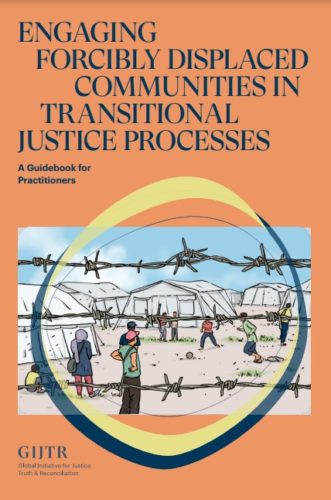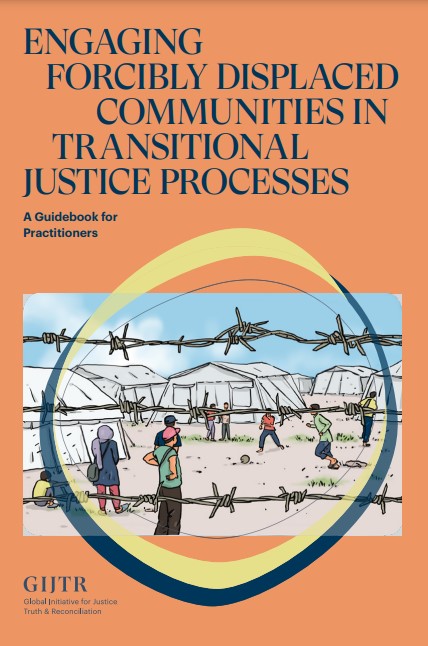
While existing transitional justice mechanisms have to an extent recognized the need to address human rights violations associated with forced migration, this has not yet resulted in the meaningful participation of forced migrants – refugees, internally displaced persons (IDPs), and asylum seekers in national transitional justice processes in their countries of origin. As a result, the vast majority of forced migrants remain excluded from these processes, even when their victimization and victimhood have been acknowledged.
Therefore, the Global Initiative for Justice, Truth and Reconciliation (GIJTR) launched a guidebook on Forced Migration and Transitional Justice, which aims to facilitate the integration of forced migration as a focus in relevant transitional justice policies and processes and to ensure the participation and inclusion of forced migrants in national transitional justice processes.
The Day After organization participated in the preparation of the guide along with other local organizations in Gambia, Sudan and Colombia, and contributed to it by presenting its experience in documenting and advocating for issues of forced migration and transitional justice in Syria.
The guidebook seeks to provide practical, user-friendly guidance for practitioners and policymakers on how to best engage forced migrant groups when planning and implementing interventions on forced migration and transitional justice.
Links to the guidebook“Engaging Forcibly Displaced Communities in Transitional Justice Processes”العربية | English | Français | Español |
The Day After Organization Experience:
The guide reviewed six pillars of the Day After organization, which are the rule of law, transitional justice, security sector reform, electoral reform and forming a Constitutional Assembly, constitutional design, and economic restructuring and social policy.
DA has implemented several projects that support the documentation of different human rights violations throughout the Syrian revolution, such as National Documentation Project, through which it established an electronic database for two million real estate documents to protect the housing, land, and property (HLP) rights of forcibly displaced Syrians. In addition to Build a database consisting of 10,000 forcibly displaced cases. It also supported survivors of detention and other human rights violations and the families of the missing, ensuring joint communication and advocacy between them and international accountability mechanisms.
TDA has contributed to Advocate for the issues of migration and transitional justice, and worked as part of the Bridges of Truth group, which consists of eight Syrian organizations, to push for full and meaningful justice for countless victims of conflict and oppression at the hands of the Syrian regime. In addition, we host the Transitional Justice Coordination Group (a group of organizations established in 2014 that work in the field of transitional justice). It also published several papers on the importance of creating a Syrian path in transitional justice, particularly the report titled Mapping of Violations in Syria Over Six Years.
Throughout its advocacy efforts in the area of forced displacement and transitional justice, TDA has produced several reports such as Reality of HLP Rights in Syria, The Role of Transitional Justice (Reparations and Compensation Mechanisms) in Addressing Property and housing Problems in Syria, Property Rights in Syria From a Gender Perspective, and Electoral Reform and Democratic Transition in Syria.
TDA believe that the role of advocacy in transitional justice processes is essential to ensure that the forcibly displaced are provided with the necessary support and protection; it is an important tool for supporting their rights and ensuring that their voices are heard and that they are not left behind as transitional justice processes are undertaken. Advocacy can be used to increase local and international awareness of displaced people’s situation and push for policies that protect and promote their rights. It can also be used to support the implementation of reparations and other measures that address the harm they experienced.
